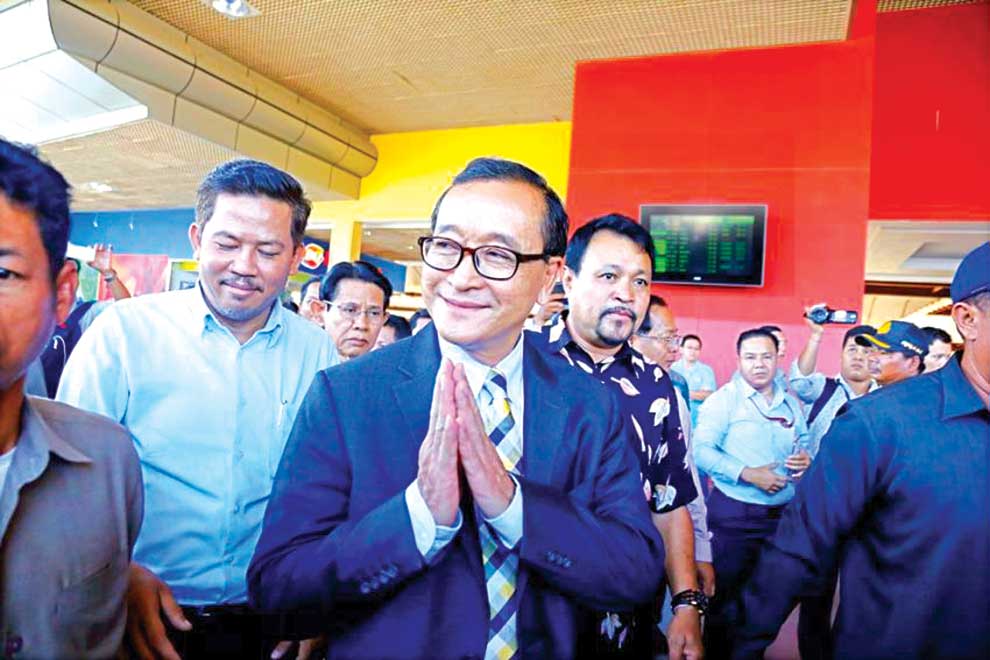
Former Cambodia National Rescue Party President Sam Rainsy has said he is standing by his claim that an appeal from the King for people to vote in the July 29 elections was made under duress. Heng Chivoan
Exiled former opposition leader Sam Rainsy is standing by his claim that the King’s call urging people to vote was “made under duress”, even as he was summonsed to appear next month in court for breaking the lèse majesté law.
Legal action was taken against Rainsy earlier this month after he posted on Facebook multiple times calling the message from King Norodom Sihamoni a “forgery” and claiming it was a product of coercion.
His claims were swiftly denounced by the Ministry of the Royal Palace.
According to a Phnom Penh Municipal Court warrant signed by Deputy Prosecutor Sieng Sok on Tuesday, Rainsy is being called as “a suspect” for questioning on July 12 over a case that involved “insulting the King” on Facebook.
“The use of words, gestures, writings, sketches or objects which undermine the dignity of a person constitutes an insult,” the amended Article 437 of the Criminal Code says.
“Insulting the King is liable to one to five years in jail and a fine of 2 million [$500] to 10 million riel.”
In response to the summons, Rainsy wrote on his Facebook page on Wednesday that he stood by his claim, but he did not say whether he would appear in court or assign a lawyer to represent him.
“Following today’s summons from the Kangaroo Court, I stick to my belief that the King’s letter dated May 18, 2018, calling on people to take part in the electoral farce set for July 29, is a forgery or written under duress.
“In any case, such a letter has no legal value. We must not believe those sold-out courtesans in the Royal Palace who are telling us lies,” he wrote.
“I maintain that our present King is held hostage by Hun Sen, who is forcing him to support an autocratic and traitorous regime,” he added.
The Justice Ministry could not be reached for comment on Wednesday, but Cambodian People’s Party (CPP) spokesman Suos Yara said it was a matter for legal action against Rainsy, and that he believed Rainsy’s rhetoric would pull him away from the political arena.
“The CPP respects the constitution . . . we respect the nation, religion and King. The one who insults the King must be punished,” Yara said, adding that Rainsy’s actions would cause the Cambodian people to turn against him.
However, former Cambodia National Rescue Party lawmaker Ou Chanrath said he believes that the legal action against Rainsy is politically motivated .
“It is politically motivated, not an implementation of the law. Since the beginning, this [lèse majesté law] has been politically motivated,” Chanrath said, adding that he did not believe what Rainsy said was an insult to the King.
Political analyst Lao Mong Hay told The Post that the lèse majesté law was enacted by an unconstitutional parliament.
“It was unconstitutional. It was meant, in the communist justice system, to serve as a political instrument to defeat enemies of the party. So the charge against Sam Rainsy is a political one,” he said.














